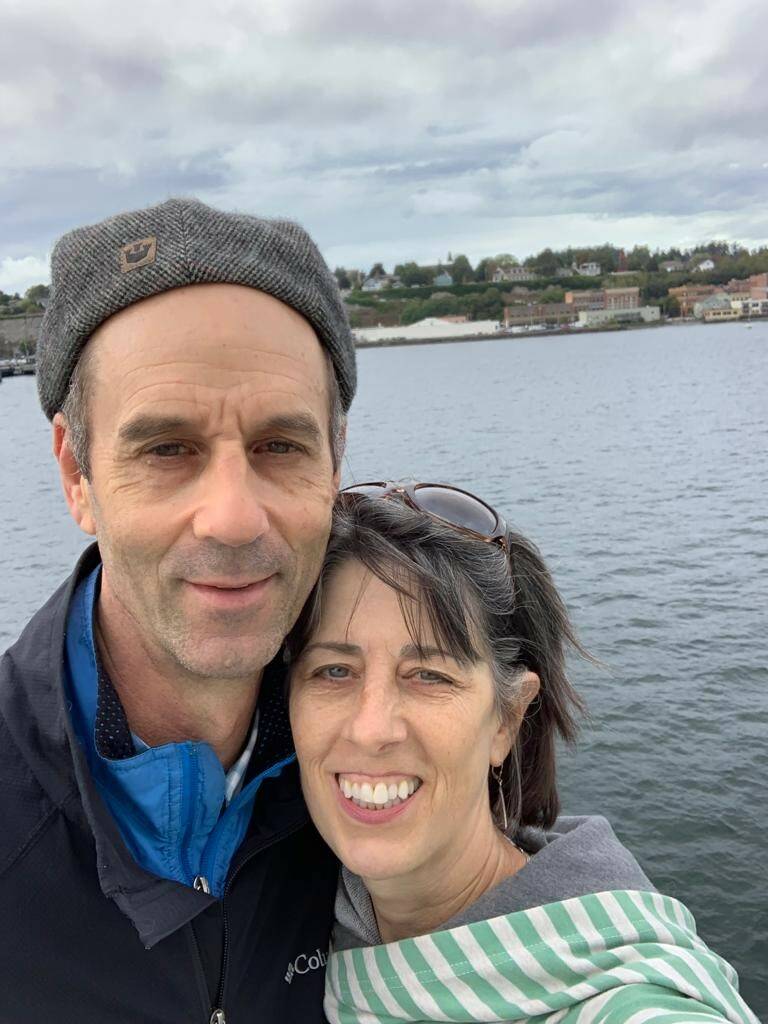During the time Stephanie Garlichs and Jeffrey Ried worked as directors of a health center in southwest Ethiopia between 2002 and 2004, the couple developed a strong connection with the local community that lives to this day.
For 18 years, long-time Oak Harbor residents Garlichs and Ried have been helping students in the town of Chiri stay in school through their nonprofit organization, the Ethiopian Education Fund. They welcome the public to attend a meeting at Music for the Eyes in Langley at 5 p.m. on Aug. 20, where they will learn more about the fund and how it has been impacting the students’ lives.
It all started after they returned to the United States, when they received an email from a young orphan they knew from their time in the village. He had found himself living on the streets with six other orphans, and none of them knew what to do to get out of that situation.
Ethiopia is one of the world’s poorest countries. When the couple moved to the rural province of Kaffa in the early 2000’s, they witnessed a severe health and hunger crisis. After a period of economic growth, the country now reels from a civil war that killed hundreds of thousands between 2020 and 2022 and the rising cost of food caused by the conflict in Ukraine.
“We thought we had seen poverty in lots of different places, but this was different,” Garlichs said. “It was poverty we had not witnessed yet.”
In helping the kids, Ried and Garlichs realized the best way they could support the community they grew to love was to help young people stay in schools.
“Education was the way to bring the most change to people,” Garlichs said.
Unlike many nonprofits, the fund does not go towards building schools and hospitals, or buying advanced equipment. Garlichs and Ried have witnessed firsthand what often happens to these generous donations — they are left unmaintained, either because they weren’t what the community needed, or because the organization did not train the community to take care of or use the equipment.
According to Garlichs, that’s what happens when organizations decide what the community needs, rather than asking.
Seeing how often this approach would result in failure, the couple decided to make better use of funds by sending monthly payments to a select number of students to cover expenses that are directly or indirectly going to help them pursue their education — whether that be fixing a roof, buying books or escaping a civil war.
The fund selects students through a local committee based on need and academic performance, and is committed to helping two girls for every boy as girls experience gender discrimination in the country.
“Over time, we’re turning it over more and more to Ethiopians,” Garlichs said. “At some point, I think we will just be the fundraising arm for an organization that’s run by Ethiopians in Ethiopia.”
These contributions — whether they keep students in school for a year, five, or until they graduate university — can change lives, Garlichs said. They give kids hope for a better life, particularly girls, who often have to abandon their studies to marry or work, and it gives families an alternative to pulling their kids out of school.
One of the students in the program abandoned her dream to go to university after she failed an admission test, and returned to her village where she married and became a mother. A few years later, she reached out to Garlichs and Ried, announcing she had been hired as a teacher in her village because she was the most qualified for the job. The fund helped her earn a teaching certificate, and is now making a difference in her community.
The fund has been able to serve more students every year. This year it’s 40 students, but Garlichs said they want to grow more and eventually reach other communities.
It’s a slow process, as they focus on quality rather than quantity. Even though there is only a limited number of students the fund can help each year, a teacher or a doctor alone can improve the quality of life for a town.
“The community really loves it because they know that the students from their small town are going to be able to go farther,” Garlichs said.
Over the years, the Ethiopian Education Fund has garnered more support from people in Washington and Whidbey. According to Garlichs, this is in part because they are known in the community, and all of the funds are exclusively devoted to the students and the staff in Ethiopia.
All U.S.-based volunteers have been in Ethiopia and have an emotional connection to the country and the cause. Garlichs and Ried return to Chiri every year to connect with the students.
Regardless of her bond with the community in Chiri, Garlichs believes that helping a neighbor, no matter how far away, can change the world.
For more information, visit ethiopianeducationfund.org.



